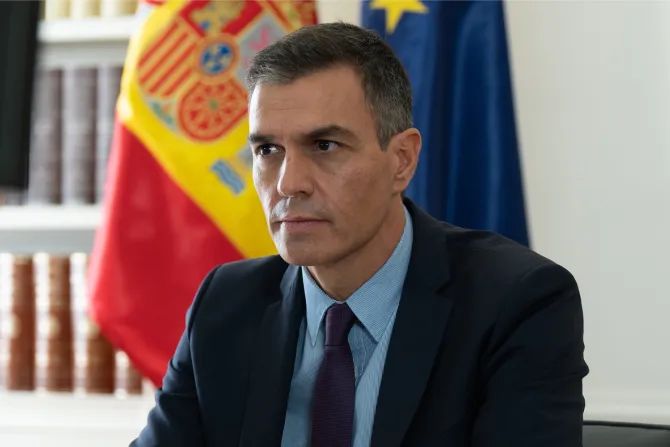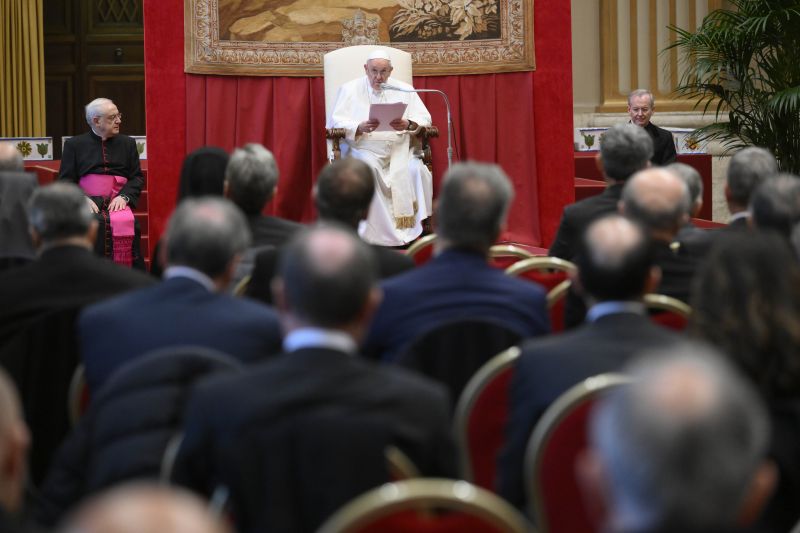Bishops in Spain call political deal to grant amnesty to Catalan secessionists immoral

 Spanish Prime Minister Pedro Sánchez. / Credit: Flickr of La Moncloa – Government of Spain (CC BY-NC-ND 2.0)
Spanish Prime Minister Pedro Sánchez. / Credit: Flickr of La Moncloa – Government of Spain (CC BY-NC-ND 2.0) ACI Prensa Staff, Nov 15, 2023 / 11:30 am (CNA).
Several Spanish bishops have spoken out in recent days against the deals reached by President Pedro Sánchez with the leaders behind the secessionist coup d’état that took place in Catalonia in 2017.
On Nov. 9 the secretary general of the Spanish Socialist Workers Party (PSOE) and acting president of the government, Pedro Sánchez, announced that he had reached an agreement with the leaders of the Catalan secessionist parties, which includes amnesty for those convicted of sedition.
Since then, some bishops have spoken out in recent days, denouncing the “immorality” of the agreements reached.
The amnesty is ‘immoral’
The bishop of Orihuela-Alicante, José Ignacio Munilla, stated in his program “Sixth Continent” on Radio María on Nov. 10 that “Spain is going through very turbulent times.”
Munilla cited St. John Paul II’s encyclical Veritatis Splendor to point out that there is a serious danger that “a democracy without values easily turns into open or thinly disguised totalitarianism.”
In his opinion, “the fact that some politicians grant amnesty to other politicians who have committed crimes in exchange for them giving them their votes and allowing them to continue governing is immoral.” The prelate also condemned the fact that the deals that were reached violate the principle of the separation of powers.
The archbishop of Oviedo, Jesús Sanz Montes, noted on X Nov. 5 that “amnesty is not a clean slate. Those who committed serious and violent crimes against coexistence [the territorial unity of Spain], destroying the rule of law, determine the future of a people with their bargaining chip. Accomplices who sell other people’s property for a mess of pottage to stay in power.”
Underlying spiritual crisis
The archbishop of Valladolid, Luis Argüello, gave a spiritual reflection Nov. 10 on the post-election deals that will keep Pedro Sánchez in power after the July 23 elections despite the fact that his party, the PSOE, did not get the most votes.
“I don’t want to make a political judgment because that’s not the responsibility of a bishop,” he explained. “But I do want to give a reflection, I might say, of a moral, spiritual, cultural nature.”
Argüello pointed to some reasons that underlie the sociopolitical tensions in Spain, with daily demonstrations in front of PSOE headquarters in Madrid, massive demonstrations last Sunday in numerous cities, and calls for more demonstrations for the next few days.
In his opinion, this is “the expression of some underlying cultural currents that we have been promoting in recent decades, such as an excessive praise of autonomy at all levels,” as well as the fact that “in the organization of our democracy, legal positivism prevails” and in society there is “a strong cultural current of emotivism that is used to exacerbate positions and promote polarization.”
For the archbishop, “neither relativism, nor legal positivism, nor the autonomy that praises the will to power, without any ethical reference, can help us.” And, deep down, he said, “there is an intense spiritual crisis, because many understandings of nationalism of all kinds are also experienced as a kind of new religion.”
The prelate also criticized that “in the political science of the last 40 years, the category of the common good has been replaced by the category of ‘interest.’ The public interest and interest is a banking term. And that’s how things are going wrong for us in the organization of our coexistence.”
Unity of Spain in danger
In his last weekly letter, the bishop of Córdoba, Demetrio Fernández, stressed that “the unity of Spain is in danger” while recalling that the Spanish bishops have expressed themselves on various occasions about the “moral value of the unity of Spain, which we all have to safeguard and which can be broken by self-interest of one kind or another.”
Fernández asked for prayers for Spain, “which is a historical project of centuries and centuries. Why break it up now? And if historical updates are to be made, they should be done within the framework of the Constitution, which all Spaniards have approved.”
“Let’s not fuel division or confrontation and let’s not get carried away by personal or collective self-interest. We cannot risk the peace of an entire nation for special interests,” he added.
Rosaries for Spain
In recent days, there have been calls for the public recitation of the rosary in the streets of Spain due to the escalation of social and political tension.
The Rosaries for Spain initiative reported that public prayers were organized last Sunday in at least 20 locations in Spain.
The Catalan crisis began with an Oct. 1, 2017, independence referendum, which had been declared unconstitutional and illegal by Spain’s constitutional court. Ignoring the court ruling, Catalonia’s separatist government proceeded with the referendum, setting the stage for sometimes-violent clashes with voters as the Civil Guard and National Police attempted to stop the vote.
According to the Catalan government, 90% of those who voted — 43% of potential voters — supported independence from Spain.
The Catalan regional parliament then declared the community’s independence Oct. 27, 2017.
In 2020, Spain’s Supreme Court found the ringleaders of the independence movement guilty of sedition and sentenced them to lengthy prison terms, which is why the deal to grant them amnesty is drawing strong opposition.
This story was first published by ACI Prensa, CNA’s Spanish-language news partner. It has been translated and adapted by CNA.





